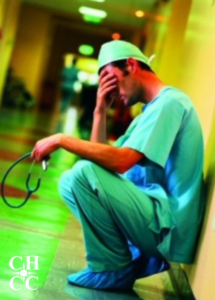
By: Barrie Quappé RN, BSN – Consultant/Director:
An inconvenient truth is that fallible human beings work in medicine. Having acknowledged that up front, we must also note that mistakes in the professional field of accounting can be costly monetarily but the rarely cost a life. When things go terribly wrong in medicine you can lose a life or cause lifelong issues for the patient.
Following a tragic incident, they should be analyzed to understand what went wrong, all the contributing factors and then a search for recommendations on how to prevent this type of sentinel incident from occurring again. In fact, the Joint Commission has a Sentinel event policy with researched methodology to work with a health care facility to do just that.
Examine everything surrounding the event and the personnel involved and using researched methods, make recommendations for improvements to prevent another similar occurrence.
I was having a conversation with a Caymanian surgeon just recently and he talked about how at the facility where he practices, they hold regular “M and M” conferences (M&MC). For the uninitiated, these are meetings to discuss Morbidity and Mortality incidences to allow the surgeon to admit an error or to piece to together all the information surrounding the event in order to learn from this with a view to prevention. Academic Medicine has published an article that sheds some examination of the conference:
“The modern M&MC has had limited examination (and almost none outside surgery and anesthesia), but may be straying from the precepts from which it evolved. Learning from one’s errors is important, but confronting them is difficult and is particularly delicate when done in conference. If the effort is successful, it can serve as a model. If unsuccessful, it can instead convey the lesson that attempting to learn from error is at best unproductive and at worst unpleasant.” (Orlander, J., Barber, T., & Fincke, G. 2002, p. 1001)
Therein lies the challenge. Medical error can have multiple contributors such as communication, the culture of the health care facility, the health of each of the team on the day of the surgery are just a few. As a practicing nurse, I was never included in one of these and all members of the team should be, in my view. Of course, I would imagine as a surgeon it is never easy to openly discuss where you think you went wrong in front of various members of the health care team and so perhaps the M&MC is left to colleagues of similar training.
 I would suggest that this may fall way short of being able to understand various contributors such as availability of resources both medical and personnel, poor communication between members of the health care team and in some cases, administration and more. Dekker suggests not looking for a quick fix.
I would suggest that this may fall way short of being able to understand various contributors such as availability of resources both medical and personnel, poor communication between members of the health care team and in some cases, administration and more. Dekker suggests not looking for a quick fix.
“Your human error problem is an organizational problem. Your human error problem is at least as complex as the organization that helped create it.” (Dekker, 2006, p. 183)
I would add that all members of a health care team are deeply affected when a patient dies under their care. Devising a system to review problems with all members of the team (it does not have to be in one big meeting – that would never be practical) would reap a deeper understanding of causal factors and stand a better chance of effecting change for improvements in safety.
Need Assistance with your People, Policies or Facilities?
Contact Cayman Healthcare Consulting Today!
Relevant Links:
- Dekker, S. (2006) The Field Guide to Understanding Human Error, Burlington: Ashgate Publishing Company.
- Orlander, J., Barber, T., & Fincke, G. (2002) ‘The Morbidity and Mortality Conference: The Delicate Nature of Learning from Error’, Academic Medicine, 77(10) October, pp. 1001 – 1006.
